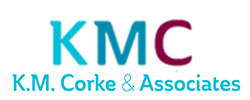The Prime Minister, amongst others, has expressed the view that COAG is a place where good ideas go to die.
On 29 May 2020, the PM said:
COAG is no more. It has been replaced by a completely new system and that new system is focused on the success that has been yielded by the operation of the National Cabinet what will be doing is keeping the National Cabinet operating and particularly during the COVID period….. One of the things we have learned over meeting so regularly is we can work effectively together as we get together using the telly presents facilities which mean premiers, particular for those in more remote States, have been able to access that engagement on a far more regular basis and it worked can incredibly well.
Well our role federally, and my role as Prime Minister, and Josh’s as Treasurer, Michael as Deputy Prime Minister, and the ministers of my Cabinet, is to set the direction. When we announced the changes to, moving past the COAG era and into the National Cabinet and National Federation Reform Council era, the big change is that there will be much stronger direction coming from the leadership. Not just from obviously from the Federal Government but from states and territories as well. What we’ve seen through the actions of the National Cabinet has been an elevation of state interests into a national interest and so when Premiers and I get around a table it is not to discuss the parochial concerns of one jurisdiction but what the national task is and how they all can play a part in it.
And so national federation reform has been proposed, with the creation of a National Cabinet at its centre.
Six initial priority areas of reform, (with accompanying subcommittees) have been identified:
- Rural and Regional Australia
- Skills
- Energy
- Infrastructure and Transport
- Population and Migration
- Health
Deregulation will be taken forward by the Council of Federal Financial Relations (CFFR) as a matter of priority, as the National Cabinet concentrates on job creation. The CFFR will apparently also focus targeted reforms in the areas of tax, deregulation and housing, which will have input from ‘expert advisory groups’ as well as the Productivity Commission.
The CFFR is also in charge of consolidating and rationalising existing Commonwealth/State financial agreements.
Finally a National Federation Reform Council consisting of the Premiers, Chief Ministers and the Austgralian Local Government Association will meet, with a focus on ‘priority national federation issues.’
Former Director-General of the WA Department of Premier and Cabinet Mr Peter Conran AM will lead the review of the former COAG Councils and Ministerial Forums with a view to rationalise and reset their work. The review will make recommendations on a streamlined structure scope and reporting arrangements and on focused regulatory and policy work programs and is to provide recommendations to National Cabinet by September 2020.
How well the regulatory and administration changes discussed in the last two posts may fate will be explored in the final two posts of this series.
